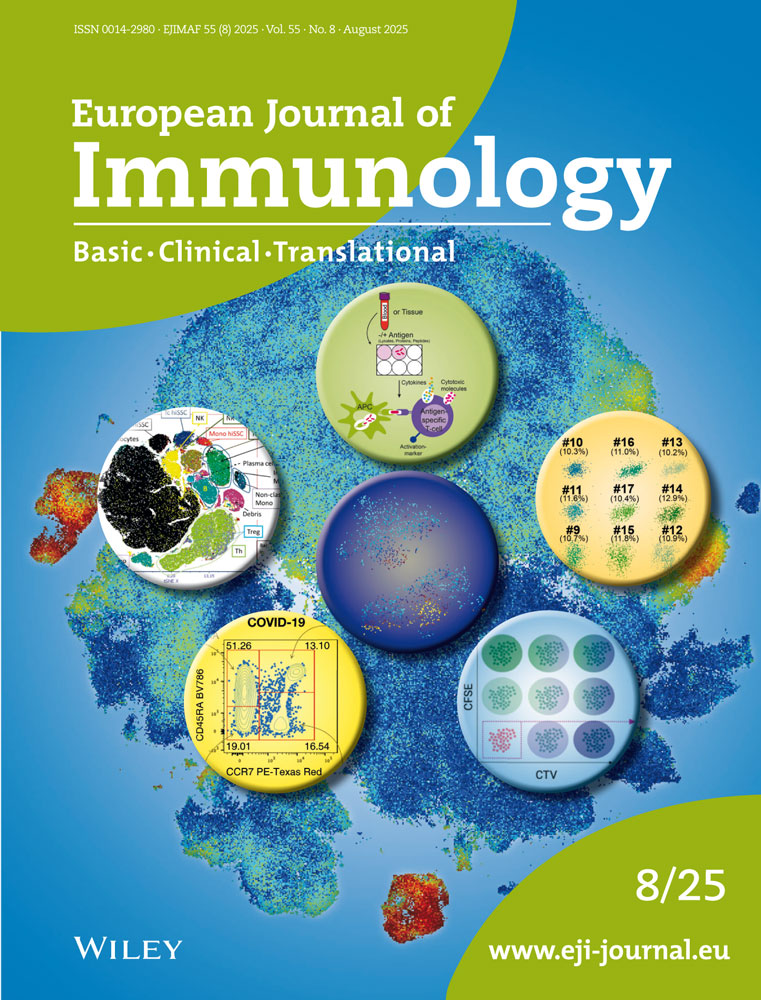Differentiation of human dendritic cells from monocytes in vitro
Abstract
Since either macrophages (Mϕ) or dendritic cells (DC) differentiate from monocytes (MO) depending on culture conditions, we investigated the relationship of the DC and Mϕ differentiation pathways. Culturing MO-enriched blood mononuclear cells with Mϕ colony-stimulating factor (M-CSF) or with granulocyte/Mϕ (GM)-CSF induced Mϕ with a different morphology and CD14/CD1a expression. In contrast, in cultures with GM-CSF and interleukin (IL)-4, cells rapidly became nonadherent and acquired DC morphology, ultrastructure, CD1a expression, and most DC markers; they lost membrane CD14 and CD64 and capacity of phagocytosis, displayed less CD68 than Mϕ, but retained nonspecific esterase activity. These DC directly developed from MO without proliferation inasmuch as only day 0 FACS-sorted MO, but not small CD14− cells, differentiated into DC when cultured with GM-CSF and IL-4, or to Mϕ with M-CSF. While overall cell numbers declined, DC numbers plateaued from culture day 2 onwards, indicating that most had differentiasted by then. This differentiation was radioresistant and occurred without [3H]thymidine incorporation. Commitment to differentiate into DC with GM-CSF and IL-4 was irreversible by day 2, since discontinuing IL-4 at this point did not revert cells to Mϕ. Alternatively, cells rapidly converted to DC when IL-4 was added from day 2 to cultures initiated with GM-CSF only. If cultures were initiated with M-CSF and switched to GM-CSF and IL-4 after 2 or 5 days, about half of the cells still converted to DC. Thus, the capacity of MO and even of Mϕ to differentiate into DC was conserved for at least this period. The increased capacity to stimulate the mixed leukocyte reaction correlated with the relative number of CD1a− cells at any time and under each condition tested, a confirmation that these cells functionally qualify as DC. Thus, MO and even Mϕ can be directed to differentiate into DC depending on the cytokine microenvironment.




